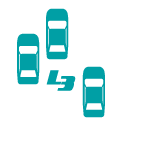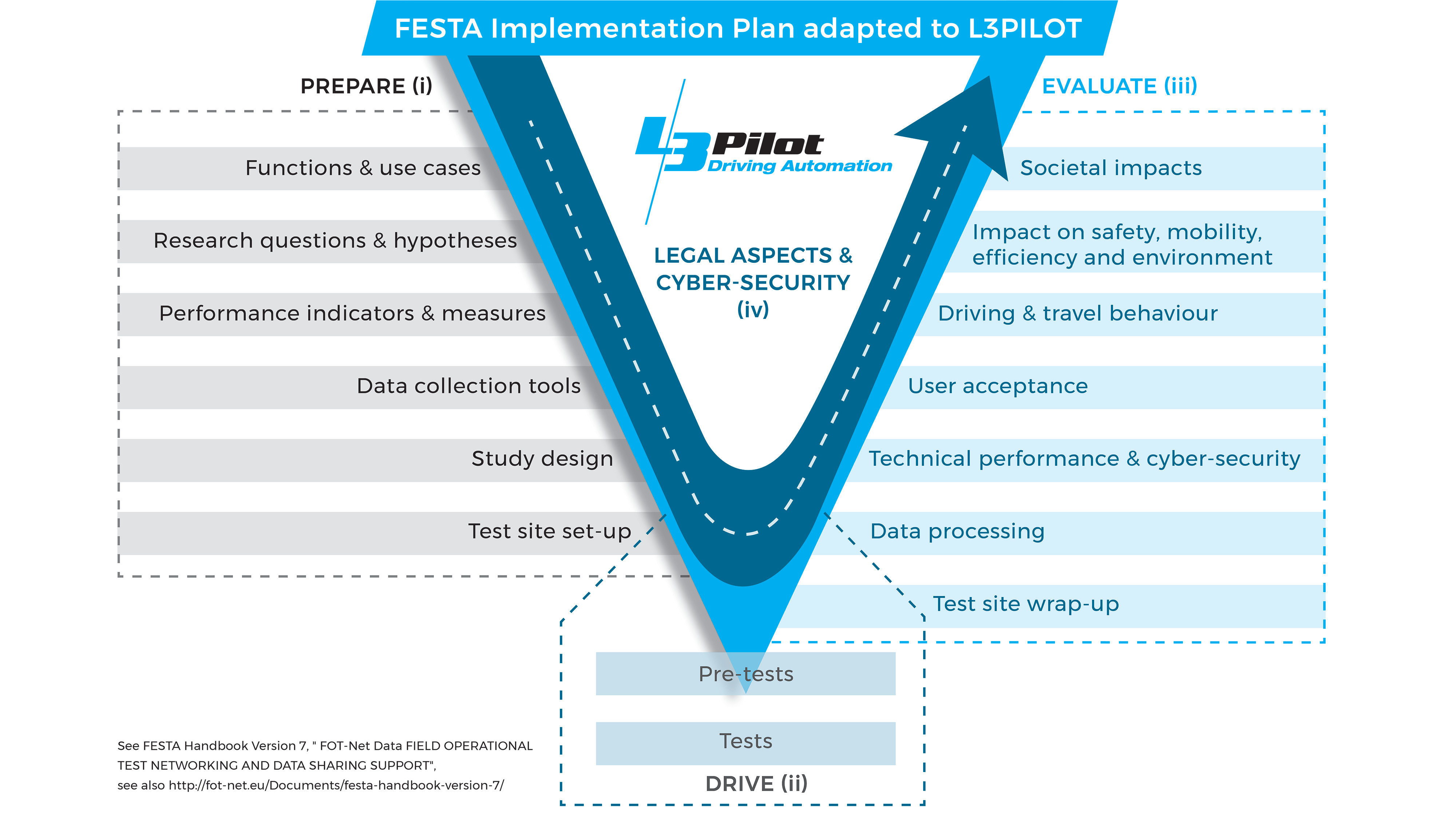Prepare
We elaborate a comprehensive research methodology to execute tests for automated driving. This will not only evaluate the previously defined dimensions, but will be open to detect eventual unintended effects of automated driving. At the same time we accept the challenge to equip a fleet of 100 cars with functions to be tested from various European automotive manufacturers in 10 different countries and across the borders among them.

Methodology
The project follows the FESTA V-process methodology of setting up and implementing tests and further adapts the methodology to suit L3Pilot needs. FESTA was originally created as a testing methodology for Advanced Driver Assistance Systems (ADAS) to be used in Field Operational Tests. We will adapt it and apply it to piloting automated driving functions.
Method
When functions and use cases have been determined, research questions and hypotheses as well as the data logging requirements for the tests will be formulated. The experimental procedure will be defined and we will elaborate how to implement it in practice on pilot sites. Evaluation methods will be determined to ensure valid results.
Evaluation
Later, during the evaluation, we will analyse different aspects of automated driving based on our acquired real-world driving data: technical functionality, user acceptance, driving and travel behaviour, impact on traffic and societal impacts.
Car, fleet and Europe
Our analysis of driving situations is locally limited to immediately surrounding traffic. Hence, this would be an analysis on single car and fleet levels, whereas a third level is required: the European level. The holistic evaluation approach of L3Pilot will consider aspects in all three dimensions.
Find out more in the project reports that will be published during the lifetime of the project.

Fleet
We will set up a fleet of 100 test cars for piloting. The developed functions will be adapted, implemented and pre-tested in the individual fleet vehicles.
While preparing the cars, we consider legal issues such as compliance to laws and regulations, including data privacy and insurance aspects. We will provide a taxonomy and description of automated driving functions of the L3Pilot fleet to be evaluated.
Find out more in the project reports that will be published during the lifetime of the project.
Cyber security
Automated driving needs to be protected against multiple attack vectors like hacking, tampering and misuse of the system, both inside on vehicles as well as on remote parts of the car ecosystem. We assess a wide variety of vectors for cyber-attacks in a controlled simulation environment.
